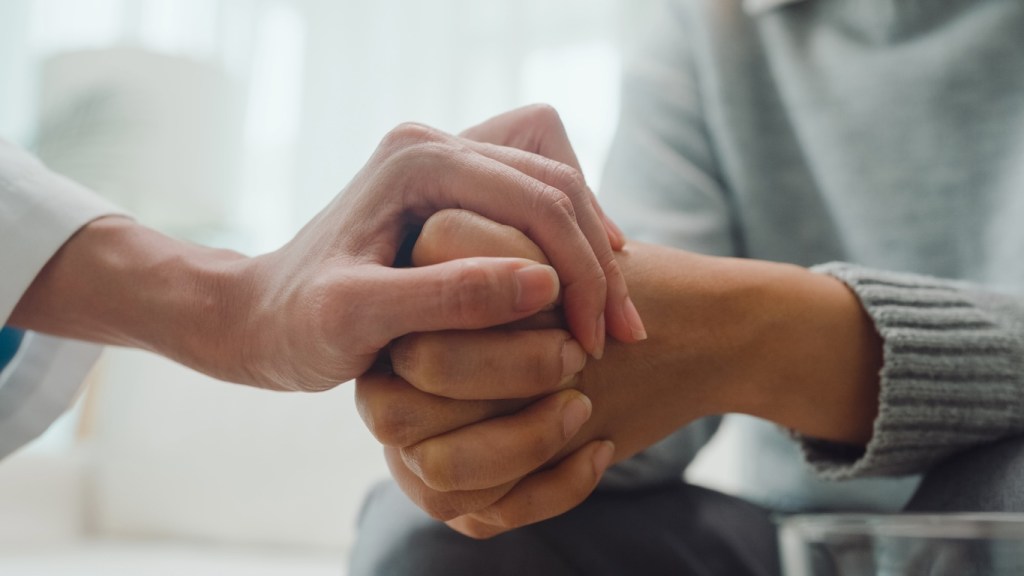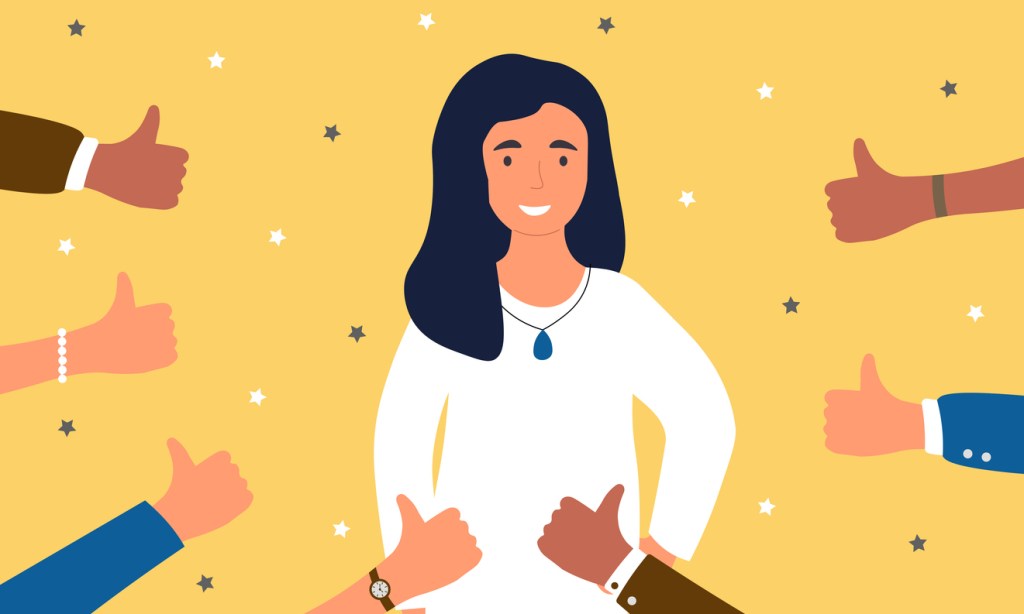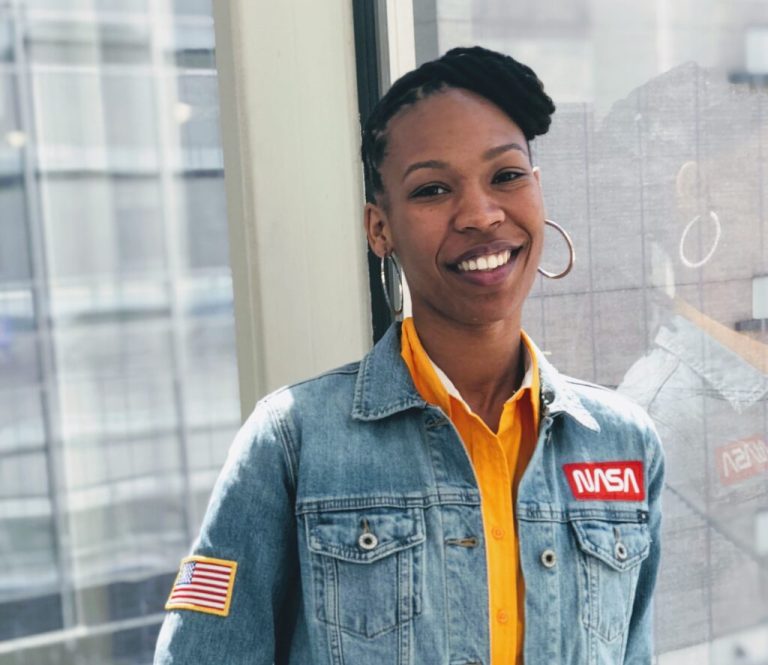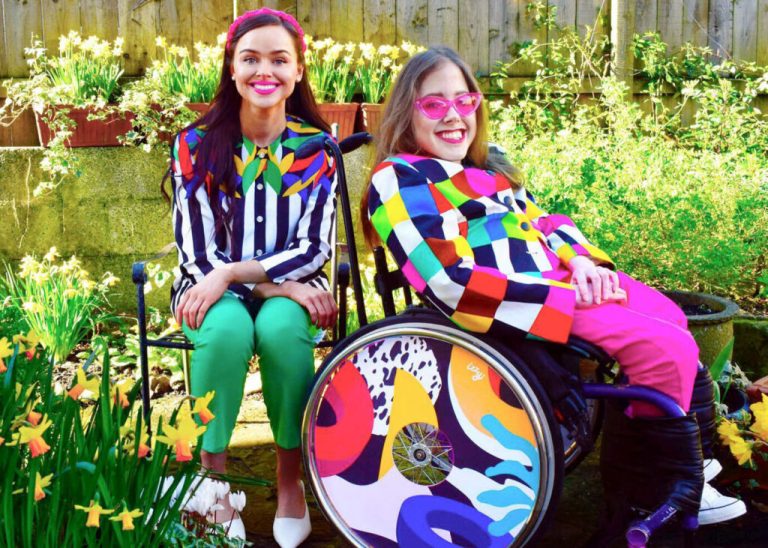Glinda the Good Witch said it best: It’s all about popular. Sometimes it seems that being likable is the key to thriving socially and professionally in our culture (whether you like it or not). After all, when Glinda gleefully belts the lyrics, “It’s not about aptitude, it’s the way you’re viewed,” she has a point.
As attractive as likability can be, it’s also a pretty complex characteristic — and if it isn’t top of mind for you, there’s nothing wrong with tuning out the opinions of others. But if you’re curious about its nuances, keep reading. We unpacked the pros and cons of trying to become more likable and narrowed down five factors that can impact how others perceive you.
What Is Likability?
Technically speaking (as in, per the dictionary), being likable means “having qualities that bring about a favorable regard.”
According to therapist Nedra Glover Tawwab, these qualities may include humor, self-awareness, and warmth — traits that generally make you a pleasant person to be around. “And there are some personality traits that might overlap with likability, like being agreeable and being able to go with the flow,” she told The Guardian.

Researchers actually coined a specific term for this concept in a 2009 study: the fundamental principle of liking. The notion is that we like people who we think have desirable traits, and dislike those with undesirable ones.
Sounds pretty straightforward — but is likability truly a quality worth seeking?
Should You Try to Become More Likable?
There’s plenty of evidence pointing to the benefits of boosting your popularity. Studies show that affable people have a higher chance of being hired, fostering successful work relationships, and becoming effective leaders. And research from 2021 determined the likability of an expert witness in court can influence jurors’ perception of that person’s credibility. Knowledge may be power, but so is charm and charisma.
As psychologist Mitch Prinstein, author of Popular: The Power of Likability in a Status Obsessed World, told Unmistakable Creative: Popularity “predicts our life success, our happiness, our risks for disease, mental and physical health even more so than our IQ, family and economic background does.”
In a sweeter sense, becoming a more likable person can also positively impact the people you care about most. A 2017 study found that people who asked more questions in conversations were better-liked than those who didn’t because the people they were talking to felt understood and validated.
But not everyone is on even footing when it comes to clocking popularity points. For instance, research suggests that “when women are acknowledged to have been successful,” they tend to be less liked than equally successful men in male-dominated spaces.
Racial bias is another unsurprising hurdle that many face. Per a study published in Social Work in Public Health, Black women are often stereotyped as “aggressive, ill tempered, illogical, overbearing, hostile.” Since these are clearly unlikable traits, it’s not hard to imagine how those perceptions can put these women at a disadvantage from the get-go in the popularity sphere.

Then there are the problems with trying too hard to be liked. Bending over backward for others can mean neglecting your own needs, and overvaluing interpersonal closeness and social acceptance (also known as sociotropy) may make people more susceptible to depression. And with the myriad things so many of us focus on in terms of self-improvement, it’s fair to wonder whether worrying about this particular quality is the best use of our time.
In short? Contrary to what Glinda sang, it may not be all about popular.
5 Factors That Influence Likability
While it’s possible to increase your likability in some aspects, it may be out of your control in others — but if you’re wondering why people perceive you a certain way, consider these five factors.
Asking Questions Makes Great Impressions
Showing interest in others by asking questions is a tactic proven to make a great impression. Harvard researchers found a “robust and consistent relationship between question-asking and liking” in the aforementioned 2017 study, since inquisitive individuals are “perceived as higher in responsiveness, an interpersonal construct that captures listening, understanding, validation, and care.”
The study particularly emphasized the importance of follow-up questions, noting that participants who asked more of them had a higher likelihood of landing a second date with a partner.
Being Present Builds Rapport
Along the same lines as asking thoughtful questions, clueing your conversation partner into the fact that you’re paying attention may not only endear you to them but also help you get more out of the conversation. This is simpler than it sounds: All you really have to do is focus your energy on what the other person is saying instead of just yourself.

“The most likable people are not thinking about their likability,” Patrick King, author of The Science of Likability, told Fast Company. Instead of worrying about how they’re coming across, affable people are “present and just focused on the conversation, listening, and being curious about their conversation partner.”
Preconceived Notions Affect Perception
According to Chujun Lin, assistant professor of psychology at the University of California, San Diego, two types of preconceived notions that others have about us (called “bottom up” and “top down” assessments) are a little more difficult to change. “One is what you see,” she told The Guardian, referring to outer appearance, “but the other is based on the template I already have in my mind, like prejudice or stereotypes.”
That template may be based on someone’s unique life circumstances, background, and experiences, which have nothing to do with you. When these two types of assessments combine, they can disadvantage certain groups of people. It’s a great reminder to work on uncovering our own conscious or unconscious biases. Curious if you have implicit perceptions? Check out Harvard’s Project Implicit to test yourself.
People Like What They Know
People with similar personality patterns inherently like each other more than people with dissimilar ones, per the 2009 study. This finding has a few possible explanations: We tend to gravitate toward people who are more familiar to us, for one, and if we like ourselves, it follows that we’ll also like those with similar traits.
How can you put this into practice? When you spot a similarity with someone you’re talking to, point it out and use it to generate further conversation — bonus points if you ask a follow-up question about it.
Vulnerability Creates Connections

To the relief (or dismay?) of perfectionists everywhere, there’s scientific evidence that being “the best” isn’t all that counts when it comes to popularity. A study from the ’60s, which led to what’s now known as the Pratfall Effect, demonstrated that in a trivia game, participants who were performing well but had small clumsy moments (like spilling coffee) were considered more likable than those who didn’t.
If you feel like you’re in a safe space to open up, a little vulnerability can go a long way in endearing others to you — it’s humanizing, after all.
But as we mentioned, popularity can come with a price if you succumb to people-pleasing or feel like you have to overcompensate for unfair disadvantages. So if you instead choose to abide by the saying “what other people think about you is none of your business,” that’s completely okay too.
RELATED: Why You Need to Be Self-Aware — And How to Improve If You’re Not












